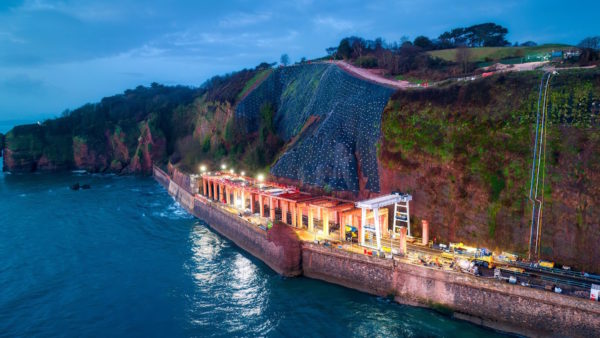
Exodigo, the non-intrusive subsurface imaging specialist, has officially launched into the UK following a successful test project with Colas Rail.
Exodigo uses sensors and AI technology to non-invasively identify utilities and other underground assets.
The company has headquarters in Tel Aviv and San Francisco and now has an operational base in London. Trevor Moore, who has more than 25 years of survey and mapping experience in the UK, has been appointed UK director. Prior to joining Exodigo, he was associate director at Murphy Geospatial.
Moore said: “Redesigns and service strikes as a result of incomplete or inaccurate subsurface mapping continue to be a problem. In my time, I have seen these issues cause costly delays to critical projects and it puts lives at risk.
“Exodigo’s technology has the potential to mitigate many of the risks associated with large infrastructure projects by providing comprehensive information about what lies beneath the surface.”
Colas Rail used Exodigo’s technology in January on the Birmingham Midland Metro Extension project that will connect to the Curzon Street HS2 station.
The Colas team had encountered uncharted services that were not noted on any existing surveys or records.
Colas asked Exodigo to provide a complete map of underground assets along the planned light rail extension route with line properties and identities.
Exodigo scanned the area with multiple sensors, camera images, and real-time kinematic GPS. It collected more than 500GB of data per acre.
It analysed and processed the data with AI and turned it into a visual underground network model.
Finding the hidden
Using Exodigo, Colas was able to detect more than 280 below-ground utility lines. This included 51 additional lines that no other locator or records had detected.
On Bull Street, Exodigo found 23 lines that previous surveys did not detect. This included two lines that were not listed on any records. Through cross-referencing, previous surveyors determined that the lines must exist, but could not locate them. With Exodigo’s analysis, the Colas team redesigned the project to avoid clashes with existing services.
On Canal Street, Exodigo detected 28 lines not found by prior surveys, including a water line at 1.6m. Previous surveys showed four lines not detected by Exodigo’s scans, which indicated that previous surveys were incorrect and that these lines were not present. Two of the lines have already been proven to be non-existent – the team is investigating to confirm the others.
Hamish Falconer, project manager on the rail extension for Colas Rail, said: “Excavating around buried services is one of our biggest risks. The stat plans provided by statutory undertakers are in large part inaccurate. Exodigo’s surveys provide us with much more reliable data that can then be used to select safer excavation techniques around known services.”
Last year, Exodigo featured in Time Magazine’s annual best inventions list. It also secured a gold medal in Cemex Ventures’ annual start-up competition.
Don’t miss out on BIM and digital construction news: sign up to receive the BIMplus newsletter.












